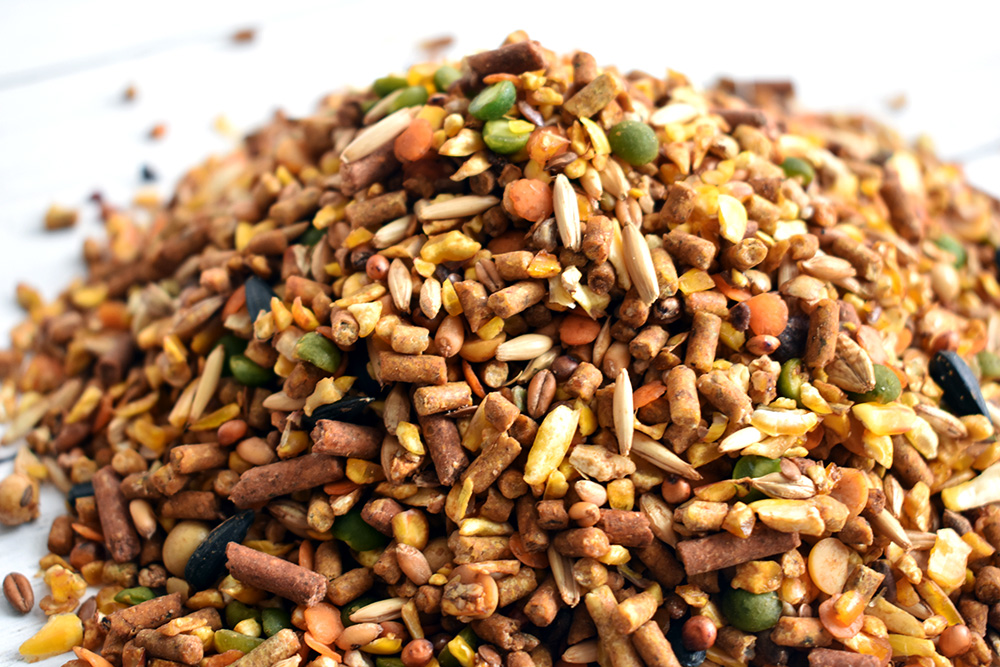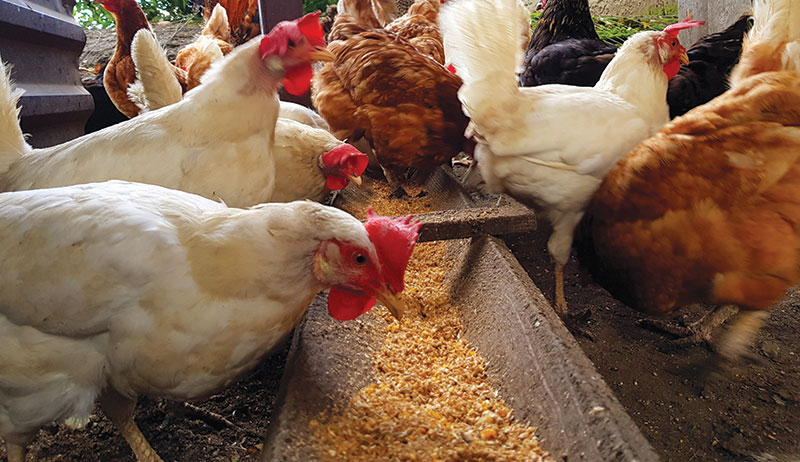It’s a commonly asked question among poultry enthusiasts: how much feed does a chicken eat per day? With the continuous rise in people raising backyard chickens, understanding feed consumption is crucial for maintaining a healthy flock. This article dives deep into the factors affecting how much feed a chicken needs daily, providing essential insights to help you manage your flock better.

Understanding Chicken Feed Consumption
The amount of feed a chicken consumes can vary widely based on several factors. These factors can influence their dietary needs, ensuring they remain healthy and productive.
Age of the Chicken
Young chicks consume less feed compared to fully grown chickens. As they grow, their dietary needs increase to support their development and egg production.
Breed of the Chicken
Different breeds have differing feed requirements. For instance, mini breeds tend to consume less feed compared to larger, full-sized breeds.
Purpose of Raising
Whether you are raising chickens for egg production or meat can influence how much feed they need. Egg-laying hens, for instance, may require a diet rich in calcium and protein.
Season and Climate
Chickens tend to eat more during the colder months to maintain their body heat, while their consumption may decrease during the warmer months.

The Average Daily Feed Consumption
On average, a mature chicken will consume about 1/4 pound (approximately 113 grams) of feed per day. However, this is a general guideline and can be influenced by the factors mentioned above.
Calculating Feed for a Flock
For a small flock of about ten chickens, you can expect to go through approximately 2.5 pounds of feed daily. For larger flocks, multiply the number of chickens by 1/4 pound to estimate daily feed consumption.

Types of Chicken Feed
Understanding the types of feed available can also influence how much feed your chickens consume. Here are the primary types of chicken feed:
Starter Feed
Starter feed is for chicks and contains higher protein levels to support their rapid growth during the first few weeks of life.
Grower Feed
As the chicks grow, they transition to grower feed, which has a slightly lower protein level but is rich in nutrients essential for their development.
Layer Feed
This feed is designed for egg-laying hens and contains higher calcium levels to support eggshell formation.
Broiler Feed
Broiler feed is formulated for meat birds, providing the necessary nutrients for fast growth.

Supplementary Feeding
In addition to regular feed, chickens can benefit from supplementary feeding, such as kitchen scraps and greens. However, it is essential to ensure these supplements do not replace their primary feed, as this can lead to nutritional imbalances.
Grit
Providing grit is essential for chickens to help them digest their food properly. Grit assists in grinding down food in their gizzard.
Calcium Supplements
Egg-laying hens require additional calcium supplements, such as oyster shells, to support eggshell formation.
Feeding Tips for Healthy Chickens
To ensure your chickens remain in good health and productive, follow these feeding tips:
Provide Clean Water
Always ensure your chickens have access to clean, fresh water. Water is as crucial as feed for their well-being.
Regular Feeding Schedule
Maintain a consistent feeding schedule to help your chickens develop a routine. This can also reduce stress, which can impact their health and egg production.
Avoid Overfeeding
While it may be tempting to provide extra feed, overfeeding can lead to obesity and related health issues. Stick to the recommended feed amounts.
Store Feed Properly
Ensure the feed is stored in a dry, cool place to prevent mold and contamination.
FAQs
How Often Should I Feed My Chickens?
Chickens should have constant access to feed throughout the day. They will naturally eat small amounts frequently over the day.
Can Chickens Overeat?
Chickens can overeat if they have unlimited access to high-calorie treats. Stick to a measured amount of feed and offer treats sparingly.
Can I Give Kitchen Scraps to My Chickens?
Yes, kitchen scraps can be given, but they should not replace their primary feed. Ensure the scraps are safe and nutritious for chickens.
For more information on different chicken breeds and their characteristics, check out jumbo egg breeds.
Are you curious about the best-tasting chicken breeds? Discover more here.
If longevity is your goal, learn about the longest-living chickens.
For those interested in colorful egg production, check out this guide.
As an Amazon Associate, I earn from qualifying purchases.









